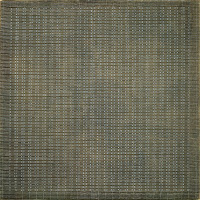31 December 2011
30 December 2011
29 December 2011
27 December 2011
Things don't necessarily come together through tension, but they certainly stay together that way; their existence gradually becomes a matter of survival rather than celebration, demanding a general state of anxiety – maintaining life rather than creating it. Relaxation in taiji is our way of reversing the process of externalization, relaxing so much that we would, were it not for the natural stickiness of our cells, come apart.
26 December 2011
We don't so much flow into time as allow time to flow through us. Everything I face or do is time past or passing : I can only experience a fading world. What enlivens us is this feeling of expressing time – of living always on the edge where future becomes past – of being in the process. What depresses us – brings us down and flattens us – is drifting into the gloom of the past.
25 December 2011
Our body is out of balance, because it’s dynamic and it’s not stable, it’s always changing, it’s transient, it’s uncomfortable, it’s comfortable, it’s relaxed, it’s tense, it’s respondent to the weather, to other people in the room, to its own inner nervous system, the nerves are laced all through the body, so the body is always out of balance and that’s how I think of it.
Steve Benson
In taiji we don't think with the mind, we direct with it. Our mind creates the apparatus that houses our being, not the other way around: we are the experiment taking place within Mind. This is most clear with principles and beliefs; they are mental constructs – axioms – that direct and enable the use of ourselves in the world at large. The use of the mind in this way enables a much deeper relaxation and internalization, but it requires an unshakable consistency; once we start directing with the mind we dare not stop otherwise we will literally fall apart at the seams.
24 December 2011
The only certainty in life is death. Or less melodramatically: the future is uncertain; things change. Most cultures acknowledge this as axiomatic, and when it is thought through it becomes clear that at least two worlds must exist: the knowable world, and the unknowable world. The knowable world consists of everything that can be experienced, thought, imagined: everything we could possibly talk about. The unknowable world contains everything we cannot experience or imagine – the world of feelings we will never feel, possibilities that will never materialize. Deleuze called these two sides of reality the actual and the virtual. My teacher calls them the External and the Internal. Science concerns itself with the process of externalization – with exploring the knowable world – making the unknown known. Spiritual work on the other hand concerns itself with a process of internalization – of becoming internal. We can never know the unknowable, but we can enter it and touch it by switching on the unknowable part of ourselves. This is the true nature of Mind – it is the Internal. Our usual use of mind – specifically thinking – is a gross externalization of Mind, designed to objectify the self and hence the world.
23 December 2011
21 December 2011
20 December 2011
19 December 2011
18 December 2011
17 December 2011
16 December 2011
15 December 2011
14 December 2011
13 December 2011
12 December 2011
11 December 2011
10 December 2011
09 December 2011
To be human is to feel, primarily. Sentio ergo sum. Feelings come and go all the time – traces of energy passing through – stimulating us to do whatever it is that we do. How we relate to a feeling depends upon us. We can ignore it – act as though we don't feel – dull and insensitive, we can resist the feeling – harden ourselves against it and attempt to deny its consequences (become a wall), we can hold onto the feeling encouraging it to develop into an emotion (become a knot), or we can simply be aware of the feeling as it happens and allow the body to respond appropriately. This last approach we call yielding.













